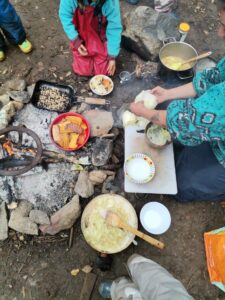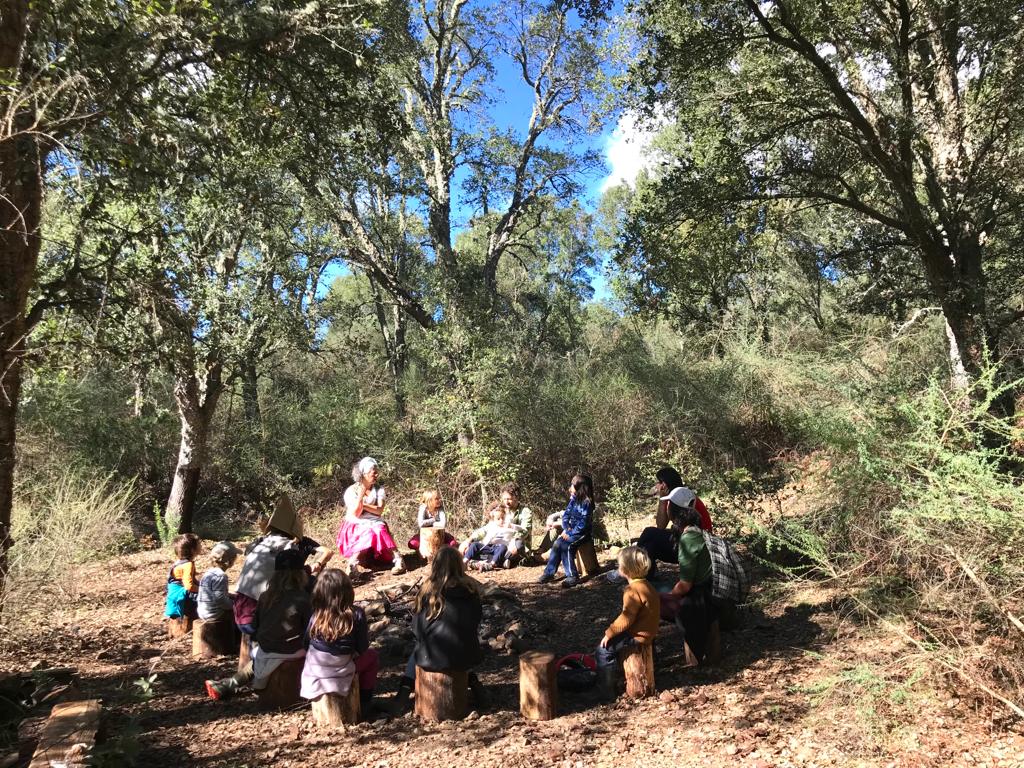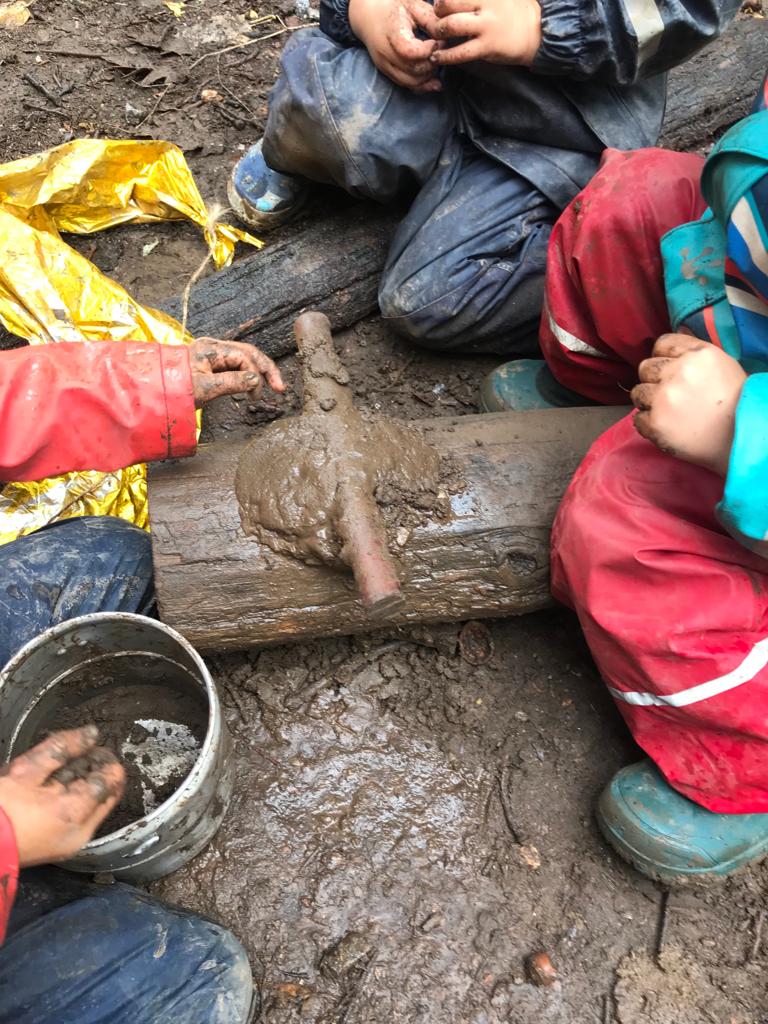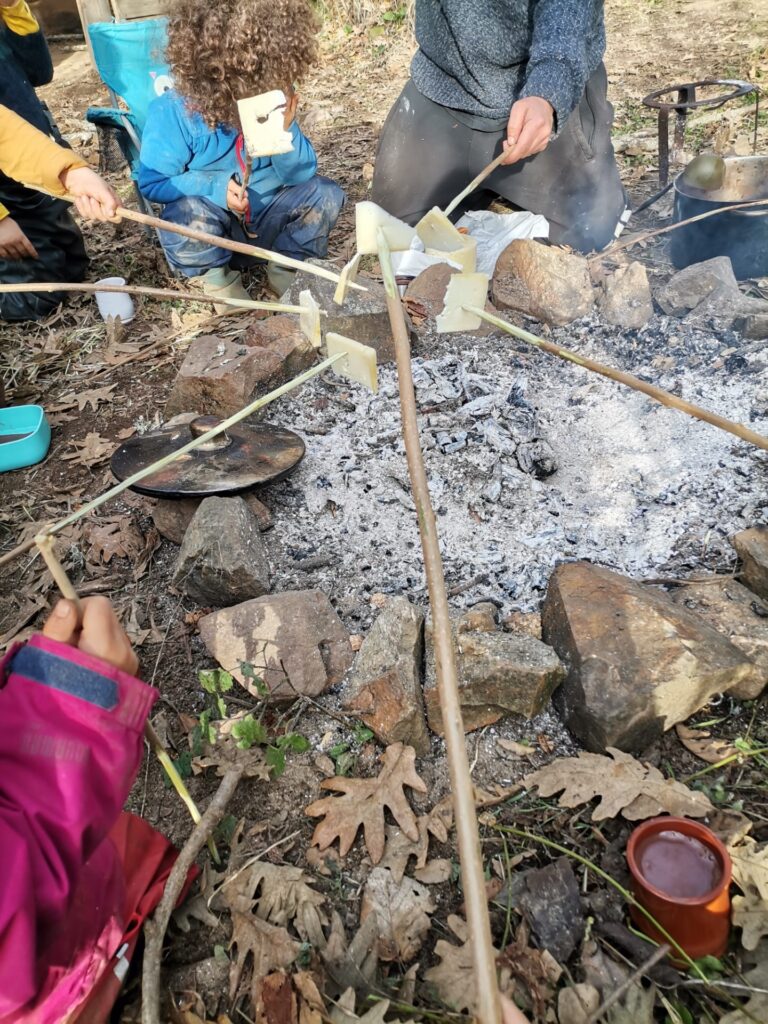BEA privileges contact with nature when accompanying children, following the Forest School methodology. Since it is attended by children of different nationalities, multiculturalism and multilingualism are one of its strengths. The Portuguese language is the central language, constituting a cultural and educational unifying factor, making it possible, through its learning, for families from other countries to be inserted in the region and for new children to be integrated in the Alto Alentejo region, currently deserted and with a low birth rate.
The Bosque Escola uses didactic materials directly related to the study of Nature (fauna, flora, geology, etc.) and favours the use of materials collected from Nature and biodegradable materials.

To promote the process of self-management, empowerment and social and civic training of children, it is intended to create a children’s assembly, either occasional or regular, to involve children more in decision-making regarding the Bosque Escola.
Conscientious and respectful support: CARE and RESPECT for the children so that they themselves:
- Discover their own resources, tools, awareness (full attention, care). Recordem de que são livres de escolher a vida que desejem e possam se auto realizar.
- Understand that their well-being and happiness is their own choice and not dependent on external circumstances.
- So that you experience life from Love, in coherence with your true Self.
Forest School
Following the principles of non-formal education and teaching based on the observation of children and their dynamics , through free play and non-directed activities, the central methodology that guides the Bosque Escola Avelãs project is that of Forest Pedagogy.
This methodology emerged in the 1950s in Scandinavian countries, based on the principle of outdoor education.
“The Forest School methodology or forest pedagogy has the following
principles:
1 – Forest School is a long-term process of frequent and regular sessions in a nature, woodland or forest context, not an
sporadic visits.
2 – The Forest School programme takes place in a woodland, forest or wooded location in order to promote the development of a relationship between the
between the child and the natural world.
3 – Forest School is intended to promote the holistic development of all involved, fostering in children and young people resilience
confidence, independence and creativity.
4 – Escola da Floresta offers children and young people the opportunity to take risks with support, appropriate to the environment and their
skills and abilities.
5- Forest School is implemented by qualified professionals who continually update and develop their practice.
6- Forest School uses a range of learning processes centred on the child and their curiosity. “






